Allergy Season Relief: Unveiling the Scientifically-Backed Benefits of Acupuncture
Photo by Elina Fairytale from Pexels
THE SEASONAL STRUGGLE:
UNDERSTANDING ALLERGIES
Spring is here! The crocuses are in bloom, soon followed by daffodils and trees. For many, allergies are a response to the new blooms and can really put a damper on this beautiful season to come. Many of my patients find themselves grappling with symptoms of the season. From sneezing and congestion to itchy eyes and skin irritation, the effects of allergy season can be both frustrating and debilitating. While conventional treatments such as antihistamines and nasal sprays offer temporary relief, a growing number of people are turning to the ancient practice of acupuncture and herbs for a more holistic approach to managing their allergy symptoms.
Allergies occur when the body's immune system overreacts to typically harmless substances, such as pollen, dust, or pet dander. This hypersensitivity triggers the release of histamines, leading to the all-too-familiar symptoms that can make daily life a challenge during allergy season. As sufferers seek out effective ways to alleviate their discomfort, acupuncture has emerged as a promising complementary therapy.
THE ACUPUNCTURE ADVANTAGE:
HARNESSING THE BODY’S HEALING POTENTIAL
Acupuncture, a key component of Traditional Chinese Medicine (TCM), has been used for centuries to treat a wide range of health concerns, including allergies. This practice involves the strategic insertion of fine needles into specific points on the body to stimulate healing and restore balance. According to TCM principles, allergies arise when there is an imbalance or blockage in the flow of qi, or vital energy, within the body. By targeting these imbalances, acupuncture aims to strengthen the immune system and alleviate allergy symptoms at their root.
One of the primary benefits of acupuncture for allergies is its ability to reduce inflammation. Inflammation is a core component of the allergic response, contributing to symptoms such as swelling, redness, and discomfort. Studies have shown that acupuncture can effectively modulate the immune system, helping to regulate the production of inflammatory compounds and providing relief from allergy-related inflammation.
THE SCIENCE BEHIND THE NEEDLES:
RESEARCH SUPPORTS ACUPUNCTURE FOR ALLERGIES
While the mechanisms behind acupuncture's effectiveness are still being explored, a growing body of scientific evidence supports its use in managing allergy symptoms. A 2013 study published in the journal Annals of Internal Medicine found that acupuncture, when used in conjunction with antihistamines, significantly reduced allergy symptoms compared to antihistamines alone. Participants who received acupuncture reported improvements in nasal congestion, sneezing, and itching.
Another study, published in the American Journal of Rhinology & Allergy in 2015, investigated the effects of acupuncture on patients with persistent allergic rhinitis. The researchers found that acupuncture led to significant reductions in nasal symptoms and improvements in quality of life. These findings suggest that acupuncture can be a valuable tool in managing the chronic symptoms associated with allergies.
BEYOND SYMPTOM RELIEF:
THE HOLISTIC BENEFITS OF ACUPUNCTURE
In addition to its direct impact on allergy symptoms, acupuncture offers a range of holistic benefits that can further support individuals during allergy season. Stress and anxiety are common companions to allergies, as the persistent discomfort and limitations imposed by symptoms can take a toll on mental well-being. Acupuncture has been shown to promote relaxation, reduce stress, and improve overall mood, helping individuals to better cope with the challenges of allergy season.
Moreover, acupuncture can help to boost energy levels and combat the fatigue that often accompanies allergies. By stimulating specific points on the body, acupuncture can enhance circulation, optimize organ function, and promote a sense of vitality. This increased energy can be invaluable for individuals who find themselves drained by the constant battle against allergy symptoms.
INTEGRATING ACUPUNCTURE INTO YOUR ALLERGY MANAGEMENT PLAN
If you are considering incorporating acupuncture into your allergy management plan, it is essential to consult with a qualified and licensed acupuncturist. A skilled practitioner will take a comprehensive approach, evaluating your unique symptoms, medical history, and overall health to develop a personalized treatment plan. They may recommend a series of acupuncture sessions, often in conjunction with lifestyle modifications and dietary changes, to optimize results.
It is important to note that while acupuncture can be a powerful tool in managing allergy symptoms, it is not a one-size-fits-all solution. Individual responses to treatment can vary, and it may take several sessions to experience significant relief. However, for many allergy sufferers, the potential benefits of acupuncture—reduced symptoms, improved quality of life, and enhanced overall well-being—make it a worthwhile addition to their allergy management strategy.
As allergy season descends upon us, bringing with it a host of uncomfortable symptoms, acupuncture offers a promising path to relief. With its ability to reduce inflammation, regulate the immune system, and promote holistic healing, this ancient practice has the potential to transform the way we approach allergy management. By integrating acupuncture into a comprehensive treatment plan, individuals can take a proactive step towards reclaiming their comfort and vitality during even the most challenging of allergy seasons.

